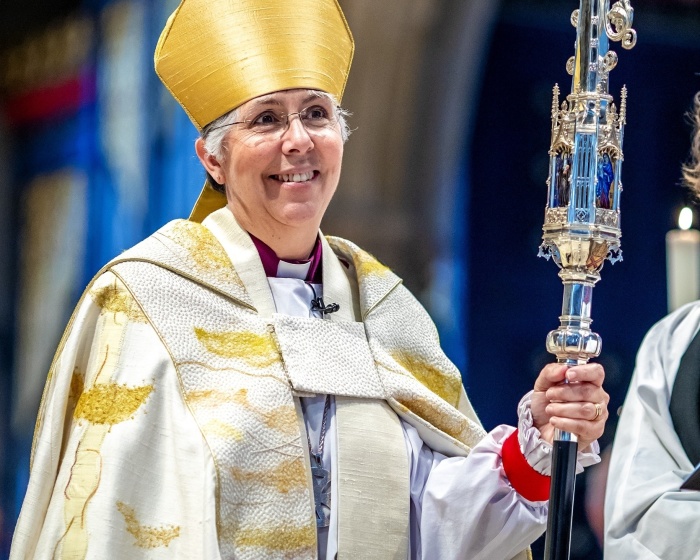Potential Milestone: The First Female Archbishop of Canterbury
A female bishop now stands at the forefront of potentially becoming the Church of England’s first female archbishop of Canterbury, with British betting firms favoring her for this historic appointment. Her candidacy emerges as the church prepares to replace the outgoing archbishop, who stepped down in January.
Guli Francis-Dehqani: The Leading Contender
Guli Francis-Dehqani, currently serving as the bishop of Chelmsford, has been identified by betting agencies as the prime candidate for the role. With odds placed at evens and 2 to 1 by some of the major firms, her selection would mark her as the 106th archbishop of Canterbury and the first woman ever to hold the position.

Historic Shifts Within the Church
The possibility of appointing a female archbishop comes during an era when women in the church have steadily gained recognition. Since the law was changed in 2014 to allow for the appointment of female bishops, their visibility within the Church of England has increased significantly, with recent figures indicating that women now make up roughly 30% of the bishops across the denomination.
The Nomination Process
The selection for the next archbishop is managed by the Canterbury Crown Nominations Commission. Chaired by Lord Evans of Weardale, the commission is set to meet for the first time later this month, with additional sessions planned in both July and September. A candidate must secure the support of two-thirds of the voting members through a confidential ballot, with a formal nomination expected by autumn.
Context and Previous Transitions
The current transition comes in the wake of events that saw the previous archbishop announce his resignation amid public scrutiny over the Church’s handling of an abuse scandal. Past appointments have shown that early favorites are not always the ones who ultimately secure the position, with historical examples reminding observers that the process can yield unexpected results.
Background and Advocacy
Born in Iran, Guli Francis-Dehqani experienced a dramatic early life, fleeing the country with her family following the 1979 Islamic Revolution. Her journey was marked by personal loss and danger, including the tragic death of her brother and assassination attempts that targeted her parents. After resettling in the United Kingdom, she pursued higher education, was ordained in 1999, and has steadily risen through the ecclesiastical ranks, serving in various significant roles including as bishop of Loughborough before her current position.
Beyond her ecclesiastical work, Francis-Dehqani has also been outspoken about public policy. In response to remarks by a political leader that portrayed Britain as increasingly isolated, she emphasized the importance of respectful language. She asserted that immigrants should be recognized as integral members of society who contribute fully to communal life, urging political leaders to refrain from dehumanizing rhetoric.
Other Notable Candidates
While Francis-Dehqani is seen as the frontrunner, other prominent figures, such as the bishop of Bath and Wells and the archbishop of Cape Town, are also being considered. However, the current focus remains on her potential to break new ground by assuming this centuries-old role.

Rockin’ the faith, one verse at a time!
Growing up, the Bible’s stories deeply impacted me. Now, with over 15 years of preaching experience, I blend timeless teachings with modern technology, making them relevant for today’s world.
Bible Hub Verse is my platform to share historical insights and thought-provoking articles, exploring both familiar and uncommon Christian topics. My passion is building a welcoming online space for everyone to learn, grow in their faith, and discover the Bible’s enduring message.
Join the journey!
God bless you.






